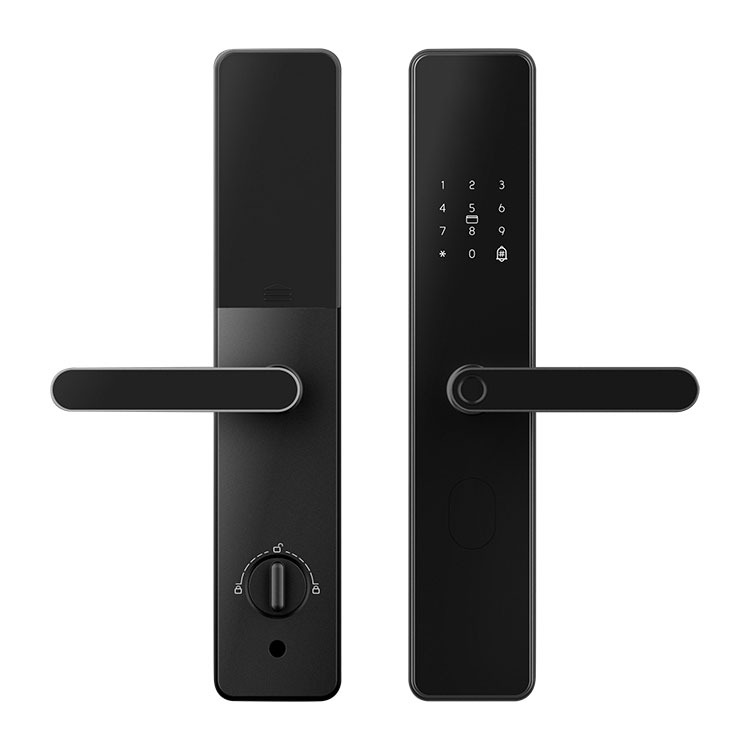How Do Room Door Locks Enhance Security and Convenience in Modern Living Spaces?
2025-02-20
Room door locks are an essential component of any home or office, offering both security and privacy. Whether you are securing a bedroom, office, or other personal space, the right door lock can provide peace of mind while adding to the overall functionality of the room. But how do these locks work, and what should you consider when choosing one for your space?
What Are the Different Types of Room Door Locks?
When it comes to room door locks, there are various options to suit different needs and preferences. Here are the most common types:
1. Knob Locks:
These are the most traditional and widely used locks for interior doors. They combine a doorknob with a built-in locking mechanism. While suitable for basic privacy, knob locks are not the most secure option for high-security needs.
2. Lever Handle Locks:
Lever handles with locks are easier to operate, making them ideal for accessibility. They often feature a thumb-turn mechanism or a push-button lock for convenience.
3. Deadbolt Locks:
For added security, deadbolts provide a higher level of protection. Although more common for entry doors, they can also be used for rooms requiring additional safety, such as home offices or storage areas.
4. Smart Locks:
Modern smart locks are gaining popularity for their convenience and advanced features. These locks often connect to smartphones or home automation systems, allowing you to lock and unlock doors remotely.
5. Keyless Entry Locks:
These locks use a keypad or fingerprint scanner, eliminating the need for traditional keys. They are a great choice for those who value convenience and enhanced security.
6. Sliding Door Locks:
Designed specifically for sliding doors, these locks are perfect for closets or rooms with space-saving sliding doors.
Why Are Room Door Locks Important?
Room door locks serve multiple purposes, making them a necessity in both residential and commercial spaces. Here’s why they are important:
1. Privacy:
Whether it’s a bedroom, bathroom, or office, locks help ensure personal privacy, allowing occupants to feel secure in their space.
2. Security:
Locks protect against unauthorized access, ensuring that sensitive or valuable belongings remain safe.
3. Safety:
In family settings, locks can be used to restrict access to rooms with potential hazards, such as storage areas containing chemicals or tools.
4. Convenience:
Modern locks, such as smart locks, offer added convenience, allowing users to control access without relying on physical keys.
5. Aesthetic Appeal:
A well-designed door lock can complement the room’s interior, blending functionality with style.
What Should You Consider When Choosing a Room Door Lock?
Selecting the right room door lock depends on several factors, including the purpose of the room and your personal preferences. Here are some key considerations:
1. Purpose of the Room:
A bathroom might only require a simple knob lock, while a home office may benefit from a deadbolt or smart lock for added security.
2. Level of Security Needed:
Rooms containing valuable items, such as safes or electronics, may require locks with higher security ratings.
3. Ease of Use:
Consider who will use the lock. Lever handle locks or smart locks may be more user-friendly for children or individuals with limited mobility.
4. Design and Aesthetics:
The lock should match the overall style of the door and room. Choose finishes and designs that blend seamlessly with your décor.
5. Technology Preferences:
If you prefer high-tech options, explore smart locks or keyless entry systems that integrate with your home automation setup.
6. Budget:
Room door locks are available in a wide price range. While high-tech options can be more expensive, they often offer long-term benefits in terms of security and convenience.
How Can You Maintain Room Door Locks?
To ensure that your room door locks function smoothly and last for years, regular maintenance is essential. Here are some tips:
1. Clean the Locks:
Dust and grime can accumulate over time, affecting the lock’s performance. Wipe the locks periodically with a damp cloth.
2. Lubricate Moving Parts:
Use a lock-specific lubricant to keep the internal mechanisms working smoothly. Avoid using grease or oil, as they can attract dirt.
3. Inspect for Damage:
Check for signs of wear and tear, such as loose screws or difficulty in turning the key. Address any issues promptly to prevent further damage.
4. Replace Old or Malfunctioning Locks:
If a lock becomes unreliable, it’s best to replace it with a new one to maintain security.
5. Test Smart Locks Regularly:
For smart locks, ensure the batteries are charged, and the software is up to date to avoid technical glitches.
Conclusion
Room door locks are much more than a basic security feature. They provide privacy, safety, and convenience while contributing to the overall functionality and aesthetics of your space. Whether you opt for a traditional lock or a modern smart system, understanding your specific needs is the first step toward making the right choice.
With advancements in lock technology, securing your personal space has never been easier. By choosing a reliable and well-maintained lock, you can create a safe and comfortable environment in any room of your home or office.



